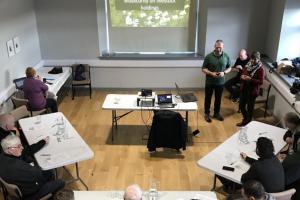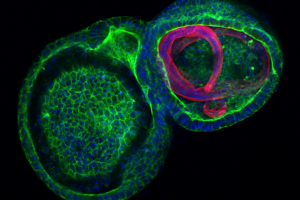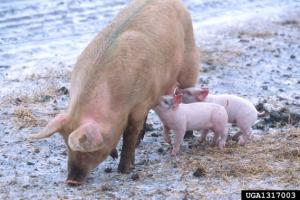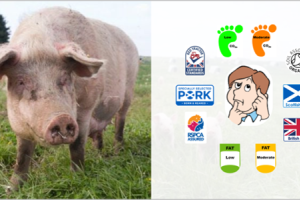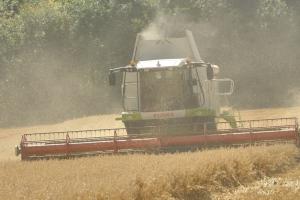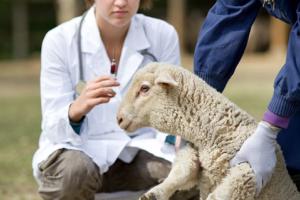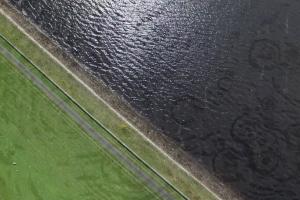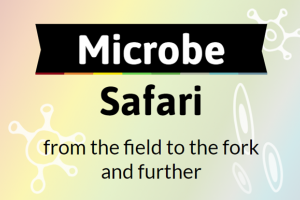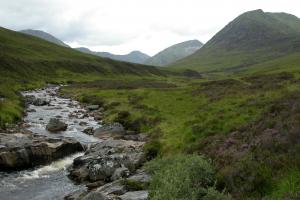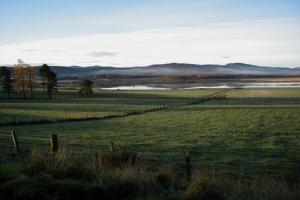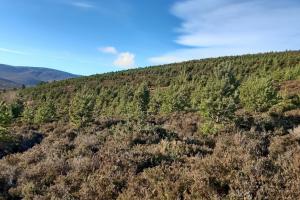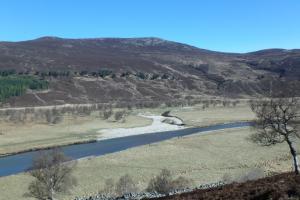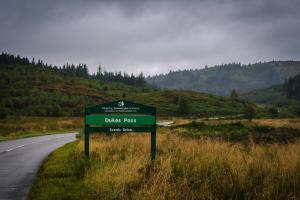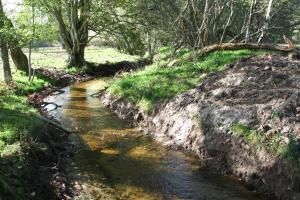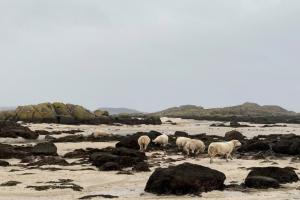21 Mar 2024
Developing a novel vaccine to protect sheep from chlamydial abortion
The bacterial pathogen Chlamydia abortus is responsible for causing the disease ovine enzootic abortion (OEA), also known as enzootic abortion of ewes (EAE).
5 Mar 2024
Biosecurity, sustainable livestock parasite control and messaging
Roundworms and sheep scab mites are common throughout the UK and threaten the health, welfare and productivity of grazing livestock.
1 Mar 2024
Small, but Mighty: Understanding animal disease using miniature lab-grown organs
Infectious diseases have a major impact on the welfare and productivity of animals raised for food production worldwide. Furthermore, poor productivity leads to increased carbon emissions, and the drugs used to control infections can harm the environment and reduce biodiversity.
28 Feb 2024
Making silk purses out of sows’ ears – challenges facing a Scottish pig farmer
Scotland’s pork sector is under financial pressure. One way to address this could be to increase the value added to Scottish pork. This case study, which focusses on a Scottish pork producer, provides insights into an enterprise serving the high value pork products market and the challenges it faces.
16 Jan 2024
Consumers’ willingness to pay for Specially Selected Pork
Scotland’s pork sector is under financial pressure. One way to address this could be to increase the value added to Scottish pork. However, that is only viable if there is a retail market for value-added Scottish pork products.
23 Nov 2023
Low-intensity cereal rotation and organic production can reduce the risk of mycotoxin contamination in oats
Mycotoxins are naturally occurring toxins produced by fungal infection of agricultural crops. Several hundred mycotoxins have been characterized in a wide range of food crops around the world, and new mycotoxins and mycotoxin metabolites are continuously discovered.
31 Oct 2023
Measurement of Antimicrobial Usage: What Can We Learn Across Livestock Sectors?
Microbes (e.g., bacteria, viruses, parasites and fungi) can become resistant to clinical or veterinary drugs (antimicrobials) that are used to treat disease. This has major consequences for how microbial diseases are managed and, therefore, how antimicrobial compounds should be used.
20 Jul 2023
The Transport, Fate and Impact of Pharmaceuticals in the Environment in Scotland
Pharmaceutical pollution in the environment has recently been receiving a lot of attention. Medicines enter wastewater streams and even after treatment, some end up in surface water. Scotland's One Health Breakthrough Partnership aims to reduce pharmaceutical concentrations in the environment.
16 May 2023
Microbe Safari: A new web resource for the public and learners
Microbes play a wide variety of essential roles in keeping our guts healthy and in supporting food and agriculture production. Conversely, some microbial populations can cause serious disease, as foodborne pathogens or infectious agents of food-producing animals and crops.
22 Feb 2023
Which habitats are at greatest risk from plant pests and pathogens?
Plant pests and pathogens can have a devastating impact not only on plant hosts but also the wider biodiversity that use the infected plant (e.g., for food, breeding and shelter).
12 Dec 2022
The Tarland Catchment: Monitoring landscape interventions to improve water quality, benefit riparian habitat and mitigate flooding
The Tarland Burn Catchment (~70 km2) has been studied since the year 2000 making it one of the longest running comprehensive catchment management case studies in the UK.
3 Nov 2022
What impact does tree planting have on soil carbon storage?
Increasingly trees are being promoted as a means to increase carbon storage and hence off-set climate change.
27 Oct 2022
Working together to improve our understanding of inclusive growth in the Highlands and Islands
In 2020, researchers and practitioners collaborated to better understand how inclusive growth can be conceptualised and measured across a large, diverse and predominantly rural region in the north and west of Scotland.
24 Oct 2022
Does floodplain restoration help to reduce extremes of water availability and improve biodiversity?
Healthy, intact floodplains play an important role in mitigating extremes of water availability (droughts and floods) expected under climate change. Compared to other ecosystems, intact floodplains also support a disproportionately high biodiversity.
30 Sep 2022
Taking the scenic (and sustainable) route - exploring public engagement strategies to decarbonise transport in UK national parks
The climate emergency presents a double challenge for public bodies as they reduce their greenhouse gas emissions and learn to adapt to the already changing climate.
18 Aug 2022
Sustainable Roundworm Control - Getting the Message Across
In an ever-changing world, it is essential that individuals are able to access, and act upon, the most relevant information and advice, and no more so than in agriculture.
12 Aug 2022
Assessing the benefits of river restoration in low energy streams
Streams and rivers in farmland areas often have a degraded morphology due to straightening and run-off pollution (inputs of fine sediment, < 2 mm particle size diameter).
14 Jun 2022
Livestock Health and Greenhouse Gases: A SEFARI Specialist Advisory Group
A SEFARI Gateway-funded Specialist Advisory Group brought together a broad range of expertise across key industry stakeholders, Government Policy Leads and relevant SEFARI researchers to discuss livestock health and greenhouse gas emissions (GHG), to prioritise health conditions that have the greatest impact on emis

